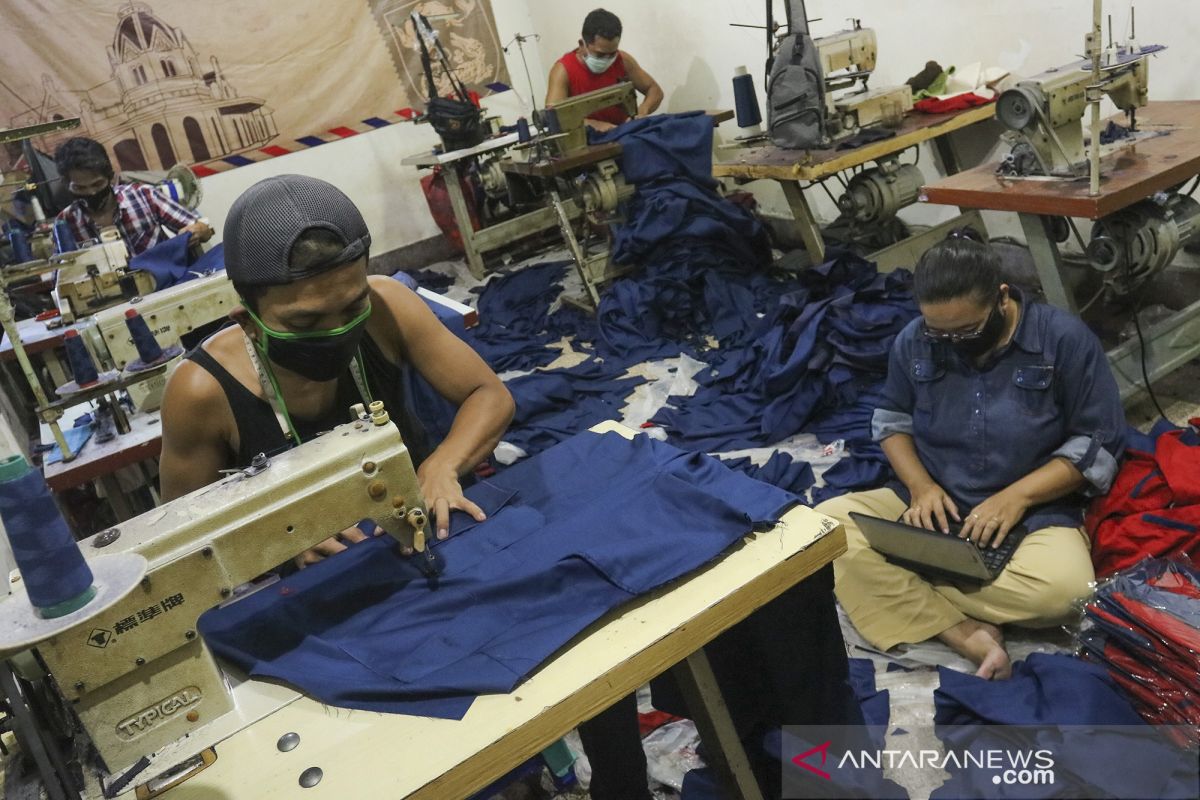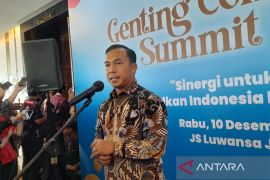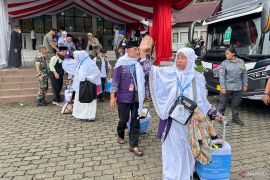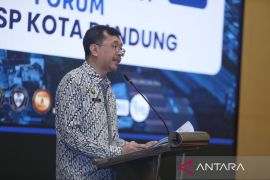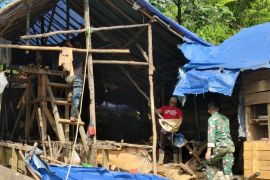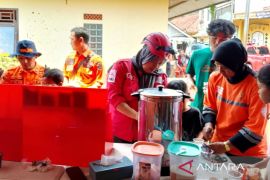We hope President Jokowi will save the garment industry in West Java whose minimum wage for district/city (UMK) has been set so high.Bogor, W Java (ANTARA) - The Association of Producers of West Java's Textile Products (PPPTJB) has urged Indonesian President Joko Widodo (Jokowi) to save the province’s garment industry by helping resolve the crucial issue of minimum wage.
"We hope President Jokowi will save the garment industry in West Java whose minimum wage for district/city (UMK) has been set so high," PPPTJB chairperson Yan Mei said in a statement released on Saturday.
The garment industry, which has already been in a critical condition due to the minimum wage policy under the regional autonomy in the past, will die quickly owing to the global economic recession that has continued to affect demand in the garment market, she added.
She further concurred with the President's warning of a global recession in 2023 owing to the economy, food, and energy crises triggered by the COVID-19 pandemic and the Russia-Ukraine war.
The President recently called upon Indonesians to stay cautious in view of predictions of a global recession, which he heard in his talks with several important figures such as the UN Secretary General, the International Monetary Fund (IMF), and G7 leaders.
According to Yan Mei, orders at West Java's garment factories in the post-COVID-19 era and in the midst of the Russia-Ukraine war have declined 40–70 percent on average.
Related news: Gov't imposes safeguard duties on imported garments, accessories
This challenging situation has also triggered a three-fold hike in logistics costs and made shipments of garment products unreliable. As a result, factories are facing a buildup of stockpiles.
This situation was acknowledged by Desi Sulastri, a member of the Compensation Committee for Bogor Area.
She said the situation has forced many garment factories in West Java to be idled and resulted in the termination of the employment contracts of 54,553 workers at 106 factories and layoffs of 9,592 workers at 18 closed factories.
She arrived at the figure of 64,165 layoffs based on data issued by 14 district/city administrations.
Besides the President’s warning regarding a global economic recession, orders for garment factories remain uncertain, Sulastri said, adding that despite the declining global demand for garment products and tough competition with such countries as Bangladesh and Vietnam, the minimum wages that garment companies must pay have tended to keep rising.
"Nobody knows for sure what will happen in the future though everybody expects that the orders will ‘get back to normal’ in June 2023," she said.
Related news: Ministry moves to restrict garment import to protect domestic industry
Yan Mei noted that the ongoing war in Ukraine has significantly pushed up inflation rates in the United States, United Kingdom, Germany, and many other European Union nations.
The United States' inflation rate, for instance, reached 9.1 percent in June 2022. It was a "new 40-year high amid spiking gas prices," she said citing data from the Washington Post.
In the midst of the rising inflation rate, the share prices of the top five US-listed garment companies, including VS&Co, GAP, PVH, and Nike, have declined significantly, according to the Washington Post's data.
Moreover, customers in the United States and Germany, who are struggling amid cost of living pressures, are currently tending to prioritize spending on food and energy instead of clothing.
To deal with this situation, H. Sariat Arifia, spokesperson for the PPPTJB, has appealed to President Widodo to help save the labor-intensive industry, especially in the garment sector.
In the case of the garment industry in West Java, it is obviously a labor-intensive sector that can help resolve the province's unemployment rate and help maintain social stability in the community, Arifia said.
Given that the current situation has been the worst seen in the garment business ever, Indonesia needs to save the garment industry, he said, adding that a special regulation for the garment industry is needed.
The issuance of the regulation cannot be put off further, he added. "The longer time the government delays, the more workers will get unemployed and more factories will close," he said.
Related news: Ready to provide 135,000 workers to textile industry: ministry
Data on garment factories' real condition are available, and stakeholders, including media outlets, are always welcome to see the number of garment factories that have laid off workers, he added.
PPPTJB chairperson Yan Mei said that she has repeatedly shared her views on UMK-related issues with the local authorities and the Ministry of Manpower and offered solutions in the past.
However, a solution to the latest problem is not yet available, so the PPPTJB hopes that President Widodo will help seek a win-win solution to prevent more layoffs owing to the coming economic recession, she added.
Related news: G20 must seek solution for mitigating food crisis: CELIOS
Related news: Gaung Muda Indonesia accommodates innovative ideas from youth
Editor: Fardah Assegaf
Copyright © ANTARA 2022
